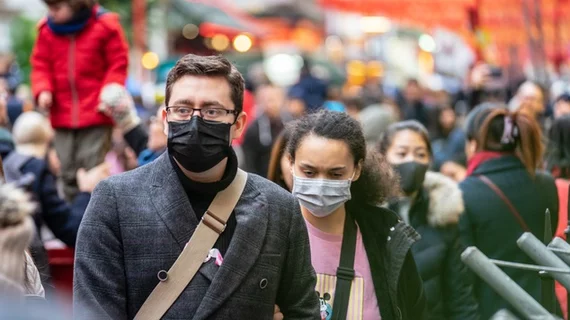As more cases of the new coronavirus, COVID-19, are being confirmed globally and in the U.S., researchers have revealed the incubation period for the virus is estimated to be 5.1 days.
The timeline is very close to SARS, according to a new study funded by the CDC, the National Institute of Allergy and Infectious Diseases, National Institute of General Medical Sciences, and Alexander von Humboldt Foundation. The study, conducted by Johns Hopkins researchers, was published in the Annals of Internal Medicine.
The research analyzed COVID-19 cases reported from Jan. 4 to Feb. 24, with 181 confirmed cases included. The vast majority––97.5% of those who developed symptoms––did so within 11.5 days, according to the study.
The researchers further extrapolated that 101 out of every 10,000 cases would develop symptoms “after 14 days of active monitoring or quarantine.” They expected that nearly all infected persons to develop symptoms “will do so within 12 days.”
Greater understanding of the incubation period is of great importance to public health knowledge about the virus as officials work to contain it and mitigate risks. Active monitoring requires people potentially exposed to the virus to check in with health authorities daily, and knowing the risk limitations for active monitoring is necessary.
“The incubation period can inform several important public health activities for infectious diseases, including active monitoring, surveillance, control and modeling,” wrote first authors Stephen A. Lauer, MS, PhD, and Kyra H. Grantz, BA, of Johns Hopkins Bloomberg School of Public Health, et al.
The researchers noted the study was limited by the possibility that publicly confirmed cases may overrepresent severe cases.

